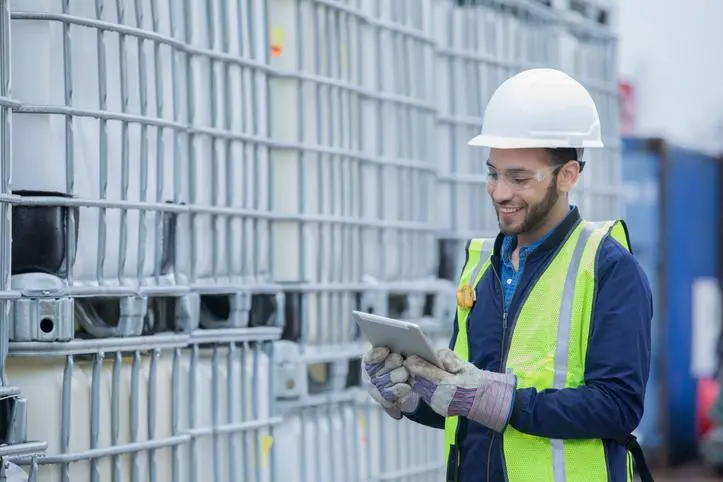PHOTO
KEC International, an India-headquartered global infrastructure Engineering, Procurement and Construction (EPC) company, announced on Monday that it has acquired a transmission tower manufacturing facility in the United Arab Emirates (UAE).
The company said in a statement that the automated facility, with a total capacity of 50,000 tonnes per annum, was acquired by its wholly-owned subsidiary KEC Towers.
The statement didn’t disclose the cost of acquisition but said the mainland Dubai facility was bought in an auction sale conducted by Emirates Auction Authority.
Indian financial daily The Economic Times had reported on Monday that the facility was acquired for INR100 crore ($14 million), adding that the unit was previously owned by Gulf Jyoti International LLC Dubai, a joint venture of Jyoti Structures, which is currently undergoing insolvency proceedings in India, and Gulf Investment Corporation of Kuwait.
The acquisition, according to the press statement, would provide KEC with a strategic foothold to serve markets with high growth potential in the Middle East and North Africa (MENA) region, secure additional business on account of local price preferences and fiscal benefits and serve as a hub for merchant supplies of towers thanks to its location near Jebel Ali Port and Al Maktoum International Airport.
In a telephonic interview with Zawya on Monday, a company official confirmed that the Dubai facility would KEC’s first manufacturing facility in the Middle East and its 6th worldwide, joining existing manufacturing facilities in India, Brazil and Mexico.
The official, who wished to remain unnamed, said the rationale behind the acquisition was mainly cost-benefits in terms of logistics, delivery times and proximity to the company’s EPC clients.
Elaborating further, she said: “Because of the cost efficiencies, we expect to have higher EPC growth. We have seen some uptick in the [tendering] activities in the region.
“While the company will continue to pursue EPC opportunities, it will also look at merchant tower supply opportunities,” the official added.
The facility would also enable KEC to meet the localisation and In-Country Value norms that have been rolled out in the Gulf countries.
“There are also some duty-related advantages which will help us on the cost-efficiency part on the raw materials, input costs,” she said.
The Middle East, the official emphasised, is an important market for KEC.
“In the last three to four years, on average, we have been clocking $200 million in revenues from the Middle East market. In the UAE, currently, we have about seven projects with a total contract value of $300 million.”
The region was contributing in a significant way to the company’s order book three to four year ago before the market slowed down.
“Now project activity has started picking up, and we see lots of opportunities going forward,” she said.
In its 2018-19 annual report, KEC had pointed out that it successfully reduced its concentration risk in Saudi Arabia, and is currently executing projects in UAE, Jordan, Egypt, and Oman in the Middle East.
The Middle East is expected to account for 4-5 percent of the global electricity transmission sector’s investments of around $1,220-1,240 billion over the next 10 years, said the annual report, quoting the Global Transmission Report.
(Writing by Anoop Menon; Editing by Mily Chakrabarty)
#PROJECTS #CONSTRUCTION #SMART GRID #UAE #Jordan #Egypt #Oman
Disclaimer: This article is provided for informational purposes only. The content does not provide tax, legal or investment advice or opinion regarding the suitability, value or profitability of any particular security, portfolio or investment strategy. Read our full disclaimer policy here.
© ZAWYA 2020





















